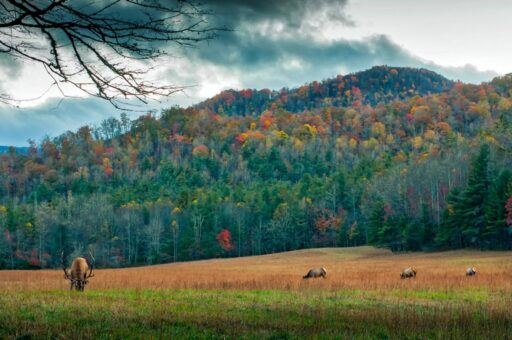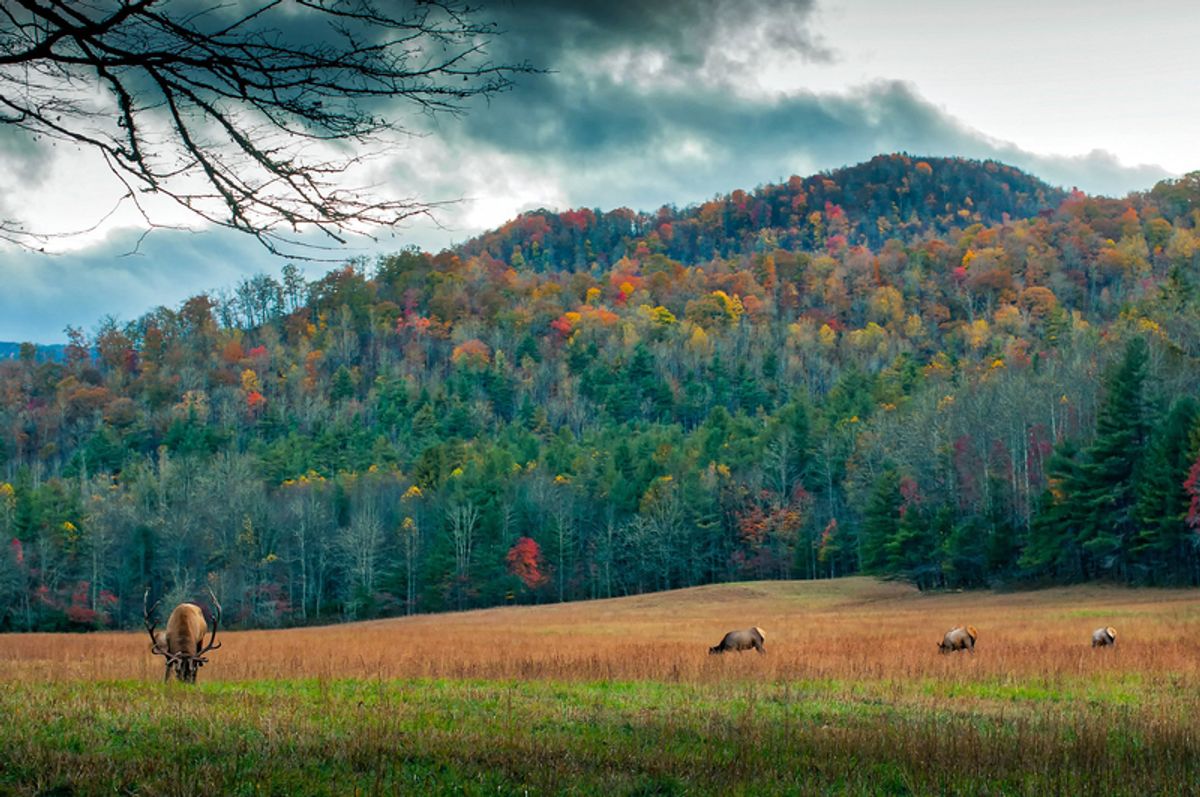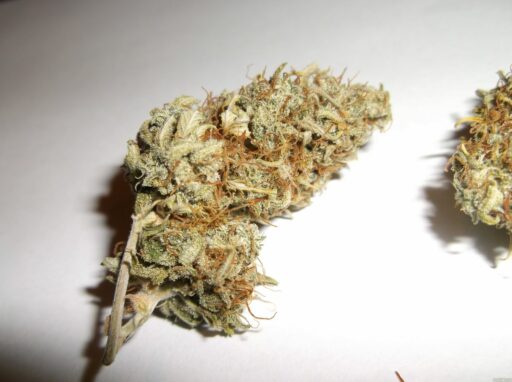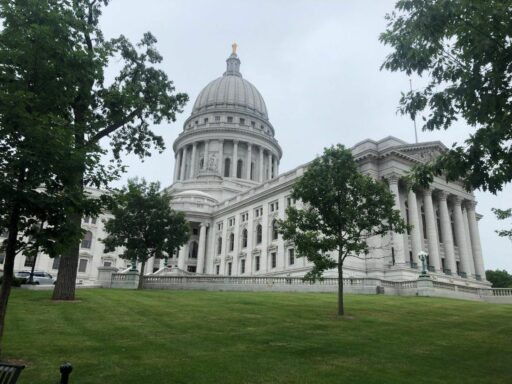North Carolina’s marijuana laws remain stringent amidst a landscape where many states are shifting towards legalization. With medical cannabis still prohibited and penalties for possession and distribution in place, the state’s legislation contrasts sharply with public opinion and the actions of the Eastern Band of Cherokee Indians. This article delves into the complexities of North Carolina’s current marijuana laws, public sentiment, tribal sovereignty issues, regional policy comparisons, and potential future changes to legislation.
Key Takeaways
- North Carolina strictly prohibits the use and possession of marijuana, with penalties including imprisonment for possession of more than a half ounce.
- Despite 78% of likely voters supporting medical cannabis legalization, North Carolina remains one of nine states that fully prohibit it.
- The Eastern Band of Cherokee Indians’ cannabis sales through Qualla Enterprises LLC have sparked controversy and concerns from state senators.
- Comparative regional analysis shows inconsistencies with neighboring states’ policies, highlighting the complex enforcement landscape.
- The future of marijuana legislation in North Carolina is uncertain, with ongoing debates and proposals potentially leading to legalization.
Legal Landscape of Marijuana in North Carolina

State Prohibition and Federal Classification
In North Carolina, marijuana remains illegal under state law, mirroring its federal classification. Under the Controlled Substances Act (CSA), marijuana is designated as a Schedule I substance, indicating a high potential for abuse and no accepted medical use. This classification places marijuana alongside drugs like heroin and LSD, and it underpins the legal framework that governs its prohibition.
Despite ongoing debates and legislative proposals, the state has not decriminalized marijuana, and it continues to enforce penalties for possession and distribution. The federal stance further complicates matters, as anti-money laundering laws criminalize the financial transactions associated with marijuana sales.
The intersection of state prohibition and federal classification creates a complex legal environment for marijuana in North Carolina, with significant implications for law enforcement and community safety.
Questions have been raised about the enforcement of these laws, especially in relation to tribal lands and the activities of federally recognized tribes. Senators have expressed concerns regarding the safety of communities and the enforcement of federal law in the context of marijuana production and sales.
Penalties for Possession and Distribution
In North Carolina, the penalties for marijuana possession and distribution are determined by the quantity involved and the intent of the individual. Possession of small amounts for personal use is treated less severely than possession with intent to distribute or trafficking.
For example, possession of half an ounce or less of marijuana is considered a misdemeanor, with no possibility of jail time, but may result in a fine. As the amount increases, so do the penalties, with significant jail time for larger quantities or evidence of distribution.
| Amount | Charge | Penalty |
|---|---|---|
| <= 0.5 oz | Misdemeanor | Fine only |
| 0.5 oz – 1.5 oz | Misdemeanor | 1-45 days in jail |
| 1.5 oz – 10 lbs | Felony | 3-8 months in jail |
| > 10 lbs | Felony | Varies (intent to distribute) |
The state’s approach to drug offenses is strict, with recent changes increasing penalties for trafficking certain substances. For instance, a person found with more than 4 grams but less than 14 grams of an opioid will face a Class F felony, highlighting the severity of North Carolina’s stance on controlled substances.
Medical Marijuana: A Non-Starter in the State
Despite growing acceptance and legalization in various states, North Carolina remains steadfast in its prohibition of medical marijuana. The state’s stance contrasts sharply with the progressive policies of some neighbors, leaving patients and advocates in a state of limbo.
- State Prohibition: North Carolina has not passed any laws to legalize medical marijuana, despite attempts to introduce legislation.
- Federal Classification: Marijuana remains a Schedule I drug at the federal level, complicating any state efforts for legalization.
- Patient Access: Without legal medical marijuana, patients in North Carolina lack legal access to cannabis for medical purposes.
The absence of a medical marijuana program in North Carolina highlights the state’s conservative approach to cannabis, even as the national trend moves towards legalization.
While the state’s medical marijuana bill has been a topic of discussion, it has yet to include provisions that would allow access for patients with specific conditions. This has left many North Carolinians looking enviously across state lines, where neighbors like South Carolina and Tennessee are also grappling with their own medical cannabis programs.
Public Opinion vs. State Legislation

Discrepancy Between Voter Support and Legal Status
Despite a clear trend of growing acceptance and legalization of marijuana across the United States, North Carolina’s stance on cannabis remains firmly rooted in prohibition. Public opinion has shifted significantly, with a recent Gallup poll indicating that 70 percent of Americans now support legalizing marijuana, a sentiment that transcends party lines. Yet, this overwhelming support has not translated into legislative action within the state.
The current legal framework presents a stark contrast to the will of the people, leading to a situation where North Carolina’s confusing marijuana laws put both users and police in a difficult position. The state’s reluctance to reform its cannabis laws is increasingly at odds with public sentiment, as voters express their frustration with the status quo. Legal and well-regulated weed is seen by many as a more sensible approach than the baffling laws North Carolina has now, which would also provide clarity for law enforcement.
The discrepancy between the expressed desires of North Carolina’s citizens and the state’s marijuana laws highlights a significant challenge for policymakers. As the call for reform grows louder, the state finds itself at a crossroads, needing to reconcile public opinion with its current legal framework.
Recent Polls and Calls for Reform
In the evolving landscape of marijuana legislation, recent polls have indicated a significant shift in public opinion. A Gallup poll from November 2023 showed that an unprecedented 70 percent of Americans now support the legalization of marijuana, reflecting a nationwide trend that transcends party lines. This surge in public support has been echoed in North Carolina, where calls for reform are growing louder.
The discrepancy between public sentiment and legislative action has become a focal point for advocates of marijuana legalization. They argue that the state’s laws are out of step with the will of the people and are pushing for changes that align with contemporary views on cannabis use.
The momentum for reform is building, with a clear message from the populace: it’s time for the state to reevaluate its stance on marijuana.
While the state legislature has yet to enact significant changes, the pressure from constituents suggests that the topic will be unavoidable in upcoming legislative sessions. The impact of these polls and public advocacy may soon pave the way for a new chapter in North Carolina’s marijuana policies.
Impact of Public Opinion on Future Legislation
The influence of public opinion on legislative action cannot be understated, especially as North Carolina approaches another election cycle. With a record high of 70 percent of Americans supporting marijuana legalization, including majorities across party lines, the pressure on state legislators to reform cannabis laws is intensifying.
The alignment of public sentiment with legislative change is a critical factor in the evolution of marijuana policies. As voters express their preferences at the ballot box, the likelihood of seeing shifts in the legal landscape increases.
Recent trends suggest that the gap between public opinion and legislative action is narrowing, with a number of bills introduced to address key issues in the cannabis industry. The momentum toward legalization, bolstered by public support, is a signpost for potential change in North Carolina’s marijuana laws.
The Eastern Band of Cherokee Indians and Cannabis Laws

Tribal Sovereignty and Cannabis Sales
The Eastern Band of Cherokee Indians (EBCI) has taken a historic step by planning to initiate the state’s first adult-use cannabis sales. This move, slated for April 20, represents a significant assertion of tribal sovereignty in the realm of cannabis commerce. The EBCI’s actions raise important questions about the interplay between tribal autonomy and federal and state regulations.
- The EBCI’s decision to enter the cannabis market has prompted inquiries from U.S. Senators regarding the implications for law enforcement and the potential attraction of criminal organizations.
- Questions also surround the legality of using gaming profits for cannabis ventures and the transportation of marijuana across state lines.
The EBCI’s venture into cannabis sales underscores the complexities of navigating federal, state, and tribal laws in a landscape where marijuana remains federally illegal.
The EBCI’s bold move has not only sparked a dialogue about the legal boundaries of tribal enterprises but also about the broader implications for the cannabis industry in North Carolina and beyond.
Controversy Surrounding Qualla Enterprises LLC
The establishment of Qualla Enterprises LLC’s cannabis operations has sparked a complex debate, intertwining issues of tribal sovereignty, legal accountability, and public safety. Concerns have been raised regarding the transportation of cannabis products across state roads, which is necessary due to the geographical separation between the cultivation site and the dispensaries on the Qualla Boundary.
Qualla Enterprises LLC has assured that their products will undergo rigorous testing by an external lab, yet questions linger about the oversight and liability in case of consumer harm. Senators have inquired about the frequency of audits by the National Indian Gaming Commission to prevent the mixing of profits from cannabis and gaming ventures.
The intersection of federal, state, and tribal laws creates a unique legal landscape for Qualla Enterprises LLC, where each decision could set a precedent for future tribal cannabis enterprises.
The table below outlines the key concerns and the respective entities involved in the oversight of Qualla Enterprises LLC’s cannabis operations:
| Concern | Entity Responsible for Oversight |
|---|---|
| Transportation of Cannabis | State and Tribal Authorities |
| Product Testing and Safety | External Laboratories |
| Legal Accountability | Department of Justice |
| Financial Audits | National Indian Gaming Commission |
Senators’ Concerns and Law Enforcement Challenges
The involvement of the Eastern Band of Cherokee Indians in cannabis sales has elicited significant concerns from state senators. They are particularly worried about the enforcement of federal and state laws regarding the production, cultivation, and sale of marijuana in areas surrounding the reservation. The complexity of the situation is heightened by questions of tribal sovereignty and the applicability of the Controlled Substances Act to federally recognized tribes.
The senators’ inquiry underscores the tension between federal law enforcement and tribal autonomy, as well as the broader implications for community safety and regulatory oversight.
In an effort to address these concerns, senators have posed 19 questions to various agencies, seeking clarity on enforcement actions and strategies. Among the queries, they asked what measures the DOJ, DOI, and DEA are taking to enforce federal law, and whether tribes are indeed exempt from the Controlled Substance Act. The list of questions reflects the depth of the senators’ apprehension:
- What enforcement efforts are in place for marijuana-related activities on the reservation?
- How are these efforts coordinated among federal and state agencies?
- What is the legal status of tribes under the Controlled Substance Act?
While the response from authorities remains unclear, the tribe has issued a rebuttal, indicating a complex legal and political standoff that could have far-reaching consequences.
Comparative Analysis of Regional Marijuana Policies

North Carolina vs. Neighboring States
When examining the legal landscape of marijuana in North Carolina, it becomes evident that the state’s policies are more restrictive compared to some of its neighbors. North Carolina remains one of the few states where both medical and recreational marijuana are illegal, a stance that contrasts with the more progressive approaches taken by certain neighboring states.
North Carolina’s steadfast prohibition stands in stark contrast to Virginia, where adult-use marijuana was legalized in 2021, and to South Carolina, which has been considering medical marijuana legislation.
Here is a brief comparison of marijuana policies in states bordering North Carolina:
| State | Medical Marijuana | Recreational Marijuana |
|---|---|---|
| Virginia | Legal | Legal |
| South Carolina | Under Consideration | Illegal |
| Tennessee | CBD Oil Only | Illegal |
| Georgia | Limited Medical Use | Illegal |
This table highlights the varied approaches to marijuana legislation in the region, which may influence cross-border dynamics and enforcement challenges.
Inconsistencies in Enforcement Across Borders
The enforcement of marijuana laws in North Carolina presents a complex tapestry, particularly when considering the state’s proximity to neighbors with varying degrees of legalization. Border counties often grapple with jurisdictional challenges, as what is permissible in one state can lead to significant legal consequences just across the state line.
- In some border areas, law enforcement agencies must navigate a delicate balance between state and federal laws.
- Discrepancies in legal status lead to confusion for residents and travelers alike.
- The lack of uniformity can result in uneven application of the law, potentially impacting individuals’ lives disproportionately.
The patchwork of policies creates a landscape where the same substance is subject to starkly different legal interpretations within a short distance. This not only complicates law enforcement efforts but also raises questions about fairness and justice in the application of marijuana laws.
Lessons from States with Legalized Cannabis
The experiences of states with legalized cannabis offer valuable insights for North Carolina. Oregon’s legislative approach to drug addiction highlights the potential for progressive drug policies to evolve. Pennsylvania’s flirtation with legalization underscores the economic opportunities and safety considerations that come with such a move. Meanwhile, South Carolina’s restrictive medical marijuana bill raises concerns about the balance between access and regulation.
States like Arizona and California have shown that technological advancements and stringent quality controls are critical in a maturing industry. Minnesota and Missouri’s experiences with training models and regulatory challenges illustrate the complexities of managing a legal cannabis market. These examples suggest that a careful, informed approach to legalization could benefit North Carolina, taking into account both the successes and the pitfalls encountered by other states.
The patchwork of policies across the United States serves as a living laboratory from which North Carolina can draw lessons. The state’s future legislation could be shaped by these insights, ensuring a responsible and beneficial framework for cannabis use.
The Future of Marijuana Legislation in North Carolina

Potential Pathways to Legalization
As North Carolina grapples with the future of marijuana legislation, several potential pathways to legalization have emerged. Public initiatives and legislative actions are at the forefront of this transformative period.
- Public Initiatives: Advocacy groups may seek to place legalization measures on the ballot, allowing voters to have a direct say.
- Legislative Actions: Lawmakers could introduce bills to legalize marijuana, either for medical or recreational use, which would then need to pass through the state legislature.
The bipartisan Harnessing Opportunities by Pursuing Expungement (HOPE) Act of 2023 exemplifies the growing recognition of the need for reform, particularly in addressing past convictions.
Another avenue is the economic argument, highlighting the potential tax revenue and job creation that legalization could bring. This argument often gains traction by pointing to the successes in states where cannabis is already legal. The table below outlines the economic benefits observed in states with legalized marijuana:
| State | Tax Revenue (in millions) | Job Creation |
|---|---|---|
| Arizona | $300 | 18,000 |
| Oregon | $150 | 12,000 |
| Pennsylvania | Estimated $500 | Projected 30,000 |
The path to legalization in North Carolina is complex and fraught with political, social, and economic considerations. However, the shifting landscape of public opinion and the examples set by other states may pave the way for significant changes in the near future.
Economic and Social Implications of Legalization
The debate surrounding the legalization of marijuana in North Carolina extends beyond legal considerations to encompass significant economic and social implications. Legalization could potentially lead to a shift in consumer behavior, as seen in a Canadian study where non-medical cannabis legalization correlated with a decline in beer sales, indicating a possible substitution effect. However, spirits sales remained unaffected, suggesting that the impact on different sectors may vary.
The prospect of legalization also raises questions about the handling of past marijuana-related offenses. There is a growing movement towards record clearing for individuals with criminal records for activities that may no longer be illegal post-legalization. This not only addresses issues of justice and equity but also has the potential to reduce barriers to employment for many affected individuals.
The economic benefits of legalization may include increased tax revenues, job creation, and a boost to state budgets. However, these benefits must be weighed against concerns such as public safety, health implications, and regulatory challenges.
In neighboring states, legislative shifts are already underway, with Virginia and Pennsylvania exploring legalization, while South Carolina remains cautious with a restrictive medical marijuana bill. These regional developments could influence North Carolina’s approach to cannabis policy, as cross-border inconsistencies pose challenges for law enforcement and policymakers.
Ongoing Debates and Legislative Proposals
The discourse surrounding marijuana legislation in North Carolina is marked by a series of ongoing debates and legislative proposals. Lawmakers continue to grapple with the complexities of cannabis policy, balancing public opinion, legal precedents, and economic considerations.
Recent legislative sessions have seen a variety of bills introduced, some aiming to decriminalize possession, while others propose a more comprehensive approach to legalization and regulation. The table below summarizes key proposals and their current status:
| Bill Number | Proposal Summary | Status |
|---|---|---|
| SB 123 | Decriminalize possession up to 1 oz | In Committee |
| HB 456 | Legalize and regulate cannabis sales | Rejected |
| SB 789 | Medical marijuana pilot program | Pending |
The ongoing legislative efforts reflect a dynamic and evolving conversation about marijuana in the state. While no consensus has been reached, the continued introduction of bills indicates a sustained interest in reforming the current laws.
As the debate progresses, stakeholders from various sectors, including law enforcement, healthcare, and civil rights organizations, actively participate in shaping the future of cannabis legislation. The outcome of these discussions will likely influence the trajectory of North Carolina’s marijuana policies for years to come.
Conclusion
In summary, North Carolina’s marijuana laws remain stringent, with both medical and recreational cannabis still illegal under state law. Despite significant public support for medical cannabis legalization, the state is one of the few that maintains a complete prohibition. The recent developments involving the Eastern Band of Cherokee Indians and their cannabis subsidiary highlight the complexities and challenges faced by state and federal laws. As federal legislation classifies marijuana as a Schedule I substance, the tension between local tribal policies and overarching federal and state regulations continues to raise questions about enforcement and public safety. The situation underscores the need for clear guidance and a potential reevaluation of marijuana laws to reflect the changing perspectives and needs of North Carolinians.
Frequently Asked Questions
Is marijuana legal in North Carolina?
No, marijuana is illegal in North Carolina. This includes both medical and recreational use.
What are the penalties for marijuana possession in North Carolina?
Possession of more than a half ounce of cannabis in North Carolina is punishable by imprisonment.
How does the public in North Carolina feel about marijuana legalization?
A February 2024 poll conducted by Meredith College indicated that 78% of likely voters in North Carolina support medical cannabis legalization.
What is the stance of the Eastern Band of Cherokee Indians regarding marijuana?
The Eastern Band of Cherokee Indians has established Qualla Enterprises LLC to produce, cultivate, and sell marijuana, despite marijuana being illegal under federal and North Carolina law.
Are there any legal concerns surrounding the Eastern Band of Cherokee Indians’ cannabis operations?
Yes, U.S. Senators have raised concerns about the legality and safety implications of the tribe’s cannabis operations, citing the Controlled Substance Act and federal anti-money laundering laws.
Is there any movement towards marijuana legalization in North Carolina?
Despite public support, North Carolina remains one of the few states where neither medical nor adult-use marijuana is legal. However, ongoing debates and legislative proposals suggest that the state may consider reform in the future.





